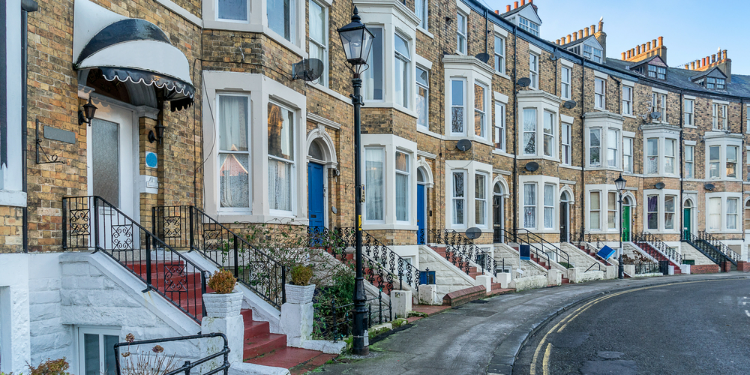
The Bank of England has relaxed mortgage eligibility criteria from August 1, 2022. The affordability test to take out a mortgage now only requires the buyer to prove that they can afford a 1% rise in the variable interest rate over the repayment period. Previously, it was 3%. This is good news for expats who want to buy property in the UK, especially first-time buyers who only have a small deposit.
“Stress test” created after the 2008 crisis scrapped
According to the Guardian, it was only in 2014 that the Bank of England introduced the rule that the borrower needs to have an income that guarantees that they can pay 3% more than the lender's standard variable rate (SVR) over the repayment period. This affordability or “stress” test was meant to prevent people from taking out mortgages they wouldn't be able to finish paying as their SVR rose. The 2008 financial crisis was partly caused by the prevalence of irresponsible mortgages, which created a housing bubble. The “stress test” was a safeguard during the recovery years post the 2008 crisis.
However, currently, the United Kingdom is currently looking to boost investment after the financial exodus triggered by Brexit. The decision to make mortgages more accessible is part of this new strategy. The relaxation in mortgage rules means that a buyer who needed to afford a £1,419 (∼ 1800 USD) monthly repayment in 2021 now only has to afford £850 (∼1000 USD) per month (according to EIN Presswire). As a result, a buyer can now afford a mortgage £49,000 (∼59,000 USD) higher in the London area, where real estate is more expensive, and £28,000 (∼ 34,000 USD) higher outside of London.
The Bank of England indicates that had this easing of rules been done earlier, about 35,000 homebuyers (6% of the total) might have been able to afford larger properties. As a matter of fact, the Bank did relax mortgage rules earlier than planned – in August 2022 instead of May 2023.
Minimizing the associated risks of relaxed mortgage rules
There are, of course, over-lending and over-stretching risks associated with relaxed mortgage rules. However, other rules have been left intact to minimize these risks. The loan-to-income ratio to take out a mortgage hasn't changed: the amount borrowed is still capped at a maximum of 4.5 times the annual income of the borrower.
The research firm Capital Economics comments in the Telegraph that the relaxed rules are “unlikely to spark a surge in lending.” This is because, even if the Financial Conduct Authority (FCA)'s benchmark is technically now the SVR plus 1%, individual banks have the freedom to set that bar higher. They will likely set it at 1.5% for many homebuyers, according to Capital Economics' analysis.
The real estate market has been slow in the last few years, so banks are being careful with regard to a future outlook where housing prices could stagnate or even go down. In addition, during the pandemic, people have struggled to make savings, so they are unlikely to be able to afford huge deposits even with the relaxed rules. Hence, while homebuyers will be able to take slightly higher mortgages, these will not be dangerously high either.
Expats will likely benefit more than local residents
Expats can benefit more from this relaxation of rules than domestic buyers for multiple reasons, according to EIN Presswire. Firstly, expats can afford larger deposits because they generally pay less taxes. For example, British expats who live abroad are only taxed in their home country for the income derived from the UK, not for the income earned in their host country. An expat based in the UK, on the other hand, is taxed on their global income.
Secondly, expats tend to earn more than locals. According to a survey by the HSBC Expat Explorer, expats usually earn 25% more abroad than at home. This is partly explained by how people often relocate to certain countries precisely because their skills are in shortage there and are hence paid more. This financial advantage makes it easier for expats, whether they are Britons in other countries or expatriates based in the UK, to pay for a higher house deposit.
So it's clear that British expats living outside the UK will benefit a lot from hiring a mortgage broker to get special deals for buying off-plan properties, student properties, long-term buy-to-lets, and city-center flats following the relaxation of the mortgage rules.
Stuart Marshall of the firm Liquid Expat Mortgages says that long-term buy-to-let rental properties are the favorite choice among first-time UK expat investors. That is because the acquisition process for this type of property is fairly straightforward, there are many mortgage plans available, and the return (in the form of monthly rent) is very stable. The demand for these rental properties is also high, as most young professionals in the UK, especially in London, rent accommodation for much of their 20s.



















